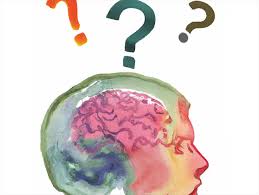
Nurturing Cognitive Growth: Empowering Children’s Minds
The Importance of Cognitive Development in Children
As children grow and learn, their cognitive development plays a crucial role in shaping their abilities to think, reason, problem-solve, and understand the world around them. Cognitive development refers to the growth of intellectual processes such as memory, attention, language, perception, and decision-making.
During early childhood, children’s brains are rapidly developing, forming connections and neural pathways that will influence their cognitive skills throughout life. Providing opportunities for cognitive stimulation and enrichment is essential for supporting this development.
Engaging children in activities that challenge their thinking abilities, such as puzzles, games, storytelling, and creative play, can help strengthen their cognitive skills. These activities encourage children to use their memory, focus their attention, make decisions, and communicate effectively.
Research has shown that a rich environment filled with diverse experiences can enhance cognitive development in children. By exposing children to new ideas, concepts, and challenges, parents and educators can help broaden their understanding of the world and foster critical thinking skills.
Encouraging curiosity, exploration, and problem-solving not only stimulates cognitive growth but also nurtures a child’s natural sense of wonder and discovery. By supporting cognitive development in children from an early age, we empower them to become confident learners who are eager to explore new possibilities.
Cognitive development is a lifelong process that continues into adolescence and adulthood. By laying a strong foundation during childhood through engaging activities and stimulating environments, we can help children develop the cognitive skills they need to navigate the complexities of the world with confidence and competence.
Key Questions on Cognitive Development in Children: Insights and Guidance for Parents
- What is cognitive development?
- How does cognitive development occur in children?
- What are the different stages of cognitive development?
- What factors influence cognitive development in children?
- How can parents support their child’s cognitive development?
- Are there any activities that can help improve cognitive skills in children?
- Is there a link between cognitive development and academic success?
- What role does play have in promoting cognitive growth in children?
What is cognitive development?
Cognitive development refers to the gradual growth and maturation of intellectual processes in individuals, particularly in children. It encompasses the acquisition of knowledge, understanding, reasoning, problem-solving skills, memory retention, and language abilities. Cognitive development is a complex and dynamic process that shapes how individuals perceive and interact with the world around them. It is essential for building a strong foundation for learning, critical thinking, and decision-making skills throughout life.
How does cognitive development occur in children?
Cognitive development in children is a fascinating process that unfolds gradually over time, shaping their abilities to think, learn, and understand the world. It occurs through a series of complex interactions between genetic factors, environmental influences, and individual experiences. As children grow and explore their surroundings, their brains form new connections and neural pathways that underpin cognitive skills such as memory, attention, problem-solving, and language acquisition. Through play, social interactions, education, and exposure to new stimuli, children’s cognitive abilities are challenged and strengthened. This dynamic process of cognitive development is essential for building a solid foundation for future learning and intellectual growth.
What are the different stages of cognitive development?
Understanding the different stages of cognitive development is essential for comprehending how children grow and learn over time. According to renowned psychologist Jean Piaget, cognitive development progresses through distinct stages: the sensorimotor stage (0-2 years), the preoperational stage (2-7 years), the concrete operational stage (7-11 years), and the formal operational stage (11 years onwards). Each stage is characterised by unique cognitive abilities and ways of thinking, reflecting the child’s increasing capacity for understanding and processing information. By recognising and supporting these stages, parents and educators can provide appropriate guidance and activities to nurture children’s cognitive growth effectively.
What factors influence cognitive development in children?
Cognitive development in children is influenced by a variety of factors that play a significant role in shaping their intellectual abilities. Factors such as genetics, environment, social interactions, nutrition, and early experiences all contribute to how a child’s cognitive skills develop. Genetics can determine a child’s innate cognitive potential, while environmental factors like access to education, stimulating activities, and supportive relationships can further enhance cognitive growth. Social interactions with peers, caregivers, and educators also play a crucial role in fostering language development, problem-solving skills, and emotional intelligence. Additionally, providing a nutritious diet rich in essential nutrients supports brain development and overall cognitive function in children. By understanding and addressing these influential factors, parents and caregivers can create an optimal environment for promoting healthy cognitive development in children.
How can parents support their child’s cognitive development?
Supporting a child’s cognitive development is crucial for their overall growth and learning. Parents can play a significant role in enhancing their child’s cognitive skills by providing a stimulating environment that encourages exploration and critical thinking. Engaging in activities such as reading together, playing educational games, solving puzzles, and encouraging curiosity can help children develop their memory, problem-solving abilities, and language skills. Additionally, offering opportunities for hands-on learning experiences and exposing children to diverse stimuli can further enrich their cognitive development. By fostering a supportive and nurturing environment that values learning and intellectual growth, parents can empower their child to thrive cognitively and reach their full potential.
Are there any activities that can help improve cognitive skills in children?
Engaging children in a variety of activities can indeed help improve their cognitive skills. Activities such as puzzles, board games, storytelling, arts and crafts, and interactive educational games are all great ways to stimulate cognitive development in children. These activities encourage problem-solving, critical thinking, memory retention, and decision-making skills. Additionally, physical activities like sports and outdoor play can also have a positive impact on cognitive abilities by promoting focus, coordination, and spatial awareness. By incorporating a mix of fun and educational activities into a child’s routine, parents and caregivers can effectively support the enhancement of their cognitive skills while fostering a love for learning and exploration.
Is there a link between cognitive development and academic success?
The link between cognitive development and academic success is a topic of significant interest and research in the field of education. Cognitive development, which encompasses processes such as memory, attention, problem-solving, and critical thinking, plays a crucial role in shaping a child’s ability to learn and succeed academically. Strong cognitive skills enable students to process information effectively, retain knowledge, and apply learning strategies in various academic tasks. Research suggests that children with well-developed cognitive abilities tend to perform better in school, demonstrating higher levels of academic achievement across different subjects. Therefore, nurturing cognitive development through stimulating activities and educational experiences can significantly contribute to enhancing academic success in students of all ages.
What role does play have in promoting cognitive growth in children?
Play plays a vital role in promoting cognitive growth in children. Through play, children engage in activities that stimulate their imagination, problem-solving skills, memory retention, and decision-making abilities. Play provides a hands-on learning experience that allows children to explore new concepts, experiment with ideas, and make connections between different pieces of information. By engaging in various types of play, such as pretend play, constructive play, and games, children develop critical thinking skills and enhance their cognitive development in a fun and interactive way.



